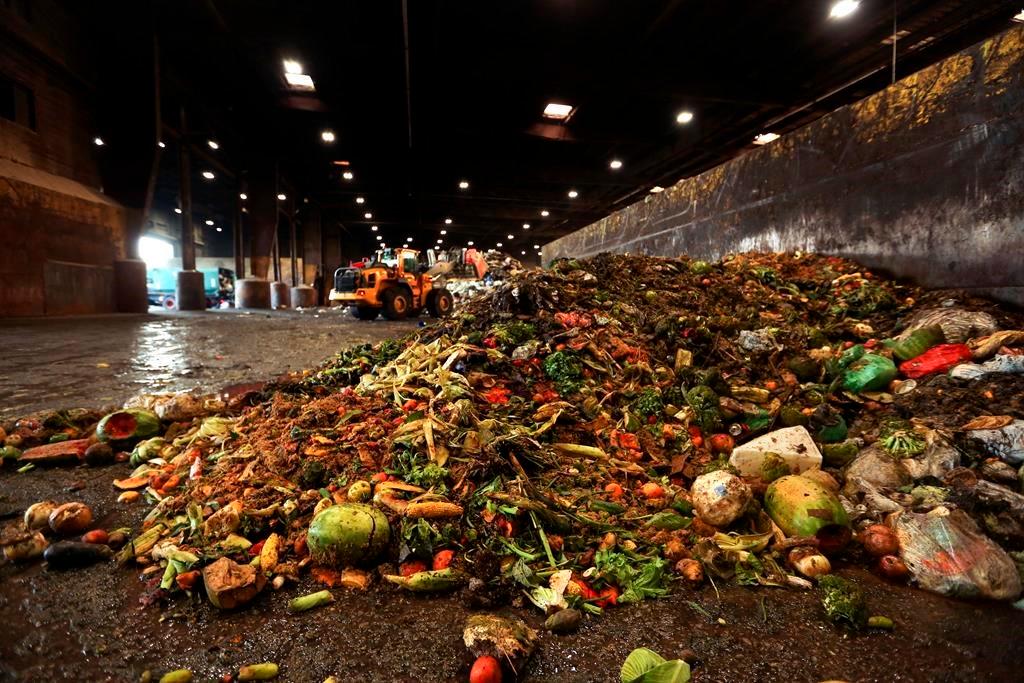At the Waste Management facility in North Brooklyn, tons of leftover food sits piled up before being processed into “bio-slurry,” in New York, in this Aug. 29, 2018 photo. A team of scientists spent weeks combing through the garbage of dozens of households to come up with what they say is the most accurate measure yet of how much food is wasted in Canadian kitchens. (The Canadian Press/AP/Stephen Groves)
A team of scientists spent weeks combing through the garbage of dozens of households to come up with what the researchers say is the most accurate measure yet of how much food is wasted in Canadian kitchens.






